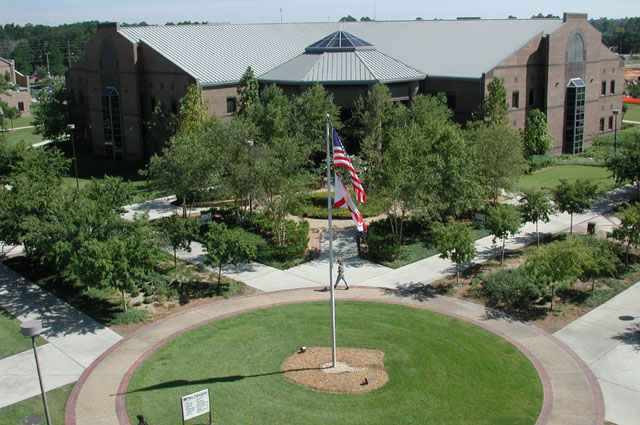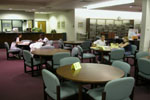Women, Politics, and Gender Bias
I started this entry, intending the title to read "Is there gender bias against women political candidates ?" After researching the topic however, I realized the question really is "How much is this bias effecting women running for political office" ?
Since 1920, when ratification of the 19th Amendment to the US Constitution guaranteed women's right to vote, the American political scene has shown very slow growth in the number of positions held by women elected to public offices.
Currently 2/3rds of the states have women representatives to either the House or the Senate in Congress, but that figure is optimistically misleading, as men outnumber women in Congress 5 to 1. In 14 other countries, women make up more then 1/3 of their countries legislative bodies, twice the percentage of the current situation in the U.S.
Women have been heads of state in a over 40 other countries, but not in the U.S.
Germany, Great Britain, India, Israel, just to name a few, have had women as presidents, chancellors or prime ministers.
Why have US citizens been so slow to acknowledge women as equally qualified to take on leadership roles at all levels of our government ?
Some research points to bias in the media coverage of women who are either running for and/or in political office. Are women held to a different standard then men in politics ? Are so many US voters anti-feminist ?
A lot of questions can be asked, and a lot of factors considered, to try to account for this American phenomenon.
The TCC Library has a number of resources available on this issue, including books, ebooks, electronic online databases, and links to relevant websites.
A few of our materials are listed below.
CQ Researcher
Jost, K. (2008, March 21). Women in politics: Does gender bias hurt female candidates?. CQ Researcher, 18, 265-288. Retrieved March 28, 2008, from CQ Researcher Online, http://library.cqpress.com/cqresearcher/cqresrre2008032100
SIRS RESEARCHER has 38 articles under the subject of "Gender Gap in Politics"
and 137 under the subject "Women, Political Activity"
NewsBank
Special Report on Election 2008 - search "gender bias" in advanced search
Center for American Women and Politics, Eagleton Institute of Politics, Rutgers University
"The Center for American Women and Politics (CAWP) is a university-based research, education and public service center. Its mission is to promote greater understanding and knowledge about women's participation in politics and government and to enhance women's influence and leadership in public life." The "Fact Sheet" section of the site contains very useful statistical information about election results, current and historical women officeholders, gender gap, voting behavior, and state-by state fact sheets. Some of the documents are in .pdf format. The "Get Connected" section has dozens of links to great informational websites.
URL: http://www.cawp.rutgers.edu/
Women's Voices for Change
Next time you hear someone question whether a woman can be president, you might want to refer them to this site and the list of democratically elected women heads of state and government. There have been 53 total to date.This list was provided by the Council of Women World Leaders. It was originally published in connection with this article about attitudes toward women leaders. http://www.womensvoicesforchange.org/2008/01/global-women-le.html
Council of Women World Leaders
A network of current and former women presidents and prime ministers whose mission is to mobilize the highest-level women leaders globally for collective action on issues of critical importance to women and equitable development.
http://www.womenworldleaders.org/
Susan B. Anthony Center for Women's Leadership, University of Rochester
The Anthony Center for Women's Leadership, inspired by the life and struggles of Susan B. Anthony, works with students, alumni, political and business leaders to overcome barriers to women's efforts to achieve social, political and economic leadership positions. This web site offers information about the Suffrage movement, Susan B. Anthony and other milestones in women's history.
URL: http://www.rochester.edu/SBA/index.html
The Status of Women in the States
Institute for Women's Policy Research (IWPR)
Summary: "The Status of Women in the States reports have been used throughout the country to highlight remaining obstacles facing women in the United States and to encourage policy changes designed to improve women's status. Data on the status of women give citizens the information they need to address the key issues facing women and their families." (IWPR)
Learn about the status of women in politics, economics, health, and rights.
URL: http://www.iwpr.org/States2004/SWS2004/about.htm
League of Women Voters
1730 M St., N.W., Suite 1000, Washington, DC 20036-4508 (202) 429-1965 http://www.lwv.org/
A grassroots, nonpartisan political organization that seeks to improve government systems and affect public policy through citizen education and advocacy.
National Organization for Women
1100 H St., N.W., 3rd Floor, Washington, DC 20005 (202) 628-8669 http://www.now.org/
The nation's largest feminist advocacy group works towards equal rights and responsibilities for women.
National Women's Political Caucus
P.O. Box 50476, Washington, DC 20091 (202) 785-1100 http://www.nwpc.org/
Grassroots organization dedicated to increasing women's participation in the political process through training and supporting pro-choice women candidates.
The White House Project
434 West 33rd St., 8th Floor, New York, NY 10001 (212) 261-4400 http://www.thewhitehouseproject.org/
Nonprofit organization that aims to fill leadership positions with diverse, competent women.
Search the TCC Online Catalog for additional resources under these headings
- Women in Politics
- Women Presidents
- Women Prime Ministers
- Leadership in Women
- Sex Role - Political Aspects
- Women Political Candidates
Excerpt from the NY Times: 3/2/2008
ROBIN TONER. "Mining the Gender Gap for Answers"
Move beyond the tactical skirmishes in this campaign, and one of the most intriguing issues remains the influence of gender on Senator Hillary Rodham Clinton's candidacy.
The questions are fundamental and -- even with modern polling technology -- almost impossible to answer. For example: How much of Mrs. Clinton's political vulnerability is linked to being a woman, and how much to her own, very specific political identity and past? Why do so many Democratic men and women, at this particular moment, see the race so differently? . . . . .
[full-text article available in NewsBank America's Newspapers database]













